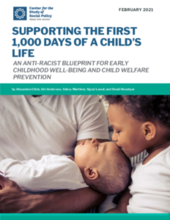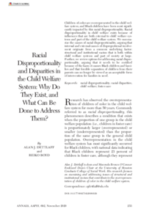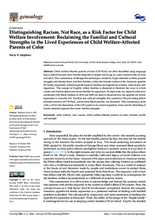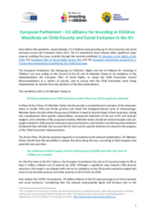Displaying 71 - 80 of 505
This video tells the story of Kaloyan and Maria, twins who spent the first five months of their lives in an orphanage because social prejudice and poor health meant their parents could not care for them alone.
This report offers a blueprint for creating equity-centered, anti-racist policies that support the health and well-being of children and families of color.
This article summarizes the causes of racial disproportionality, arguing that internal and external causes of disproportional involvement originate from a common underlying factor: structural and institutional racism that is both within child welfare systems and part of society at large.
This commentary challenges the stereotypes created by hyper-attention to the struggles of child welfare-affected parents of color (CW-PaoC) and situates them, and their families, within the broader context of the American appetite for family separation, wherein specific types of families are targeted for scrutiny, intervention and regulation.
This webinar, the fourth in the Shriver Center's Spotlight on the Foster System series, focused on intersections between the healthcare and foster systems.
This article explores this workshop in terms of its relationship with the daily lives of participants, based on one year of fieldwork focused on families with young children in a low-income neighbourhood in Santiago.
In this series of critical conversations, experts share their insights about racism, colonialism, patriarchy and power as they affect children and families around the world.
This manifesto calls on the Council of the EU and its Member States to be ambitious in the implementation the European Pillar of Social Rights, to adopt the Child Guarantee Council Recommendation as a matter of priority, and to ensure that the Child Guarantee starts being implemented six months from the adoption of the Recommendation.
The Reconstructing Children’s Rights Institute is an online institute about dismantling racism, neo-colonialism, and patriarchy in humanitarian and development efforts to protect children and support families.
The overrepresentation of black children in the foster care population represents massive state supervision and dissolution of families concentrated in their neighborhoods. This chapter from Racial Disproportionality and Disparities in the Child Welfare System addresses the social impact of this concentration of child welfare agency involvement on the residents who live in these neighborhoods.




